In support to Strategy 1 of the Philippine Export Development Plan (PEDP) 2018-2022 which is to improve the overall climate for export development, the Department of Transportation (DOTr) contributed through its submission of the Agency’s Policies, Action Plans and Programs (PAPs) to raise the productivity and competitiveness of Philippine Enterprises.
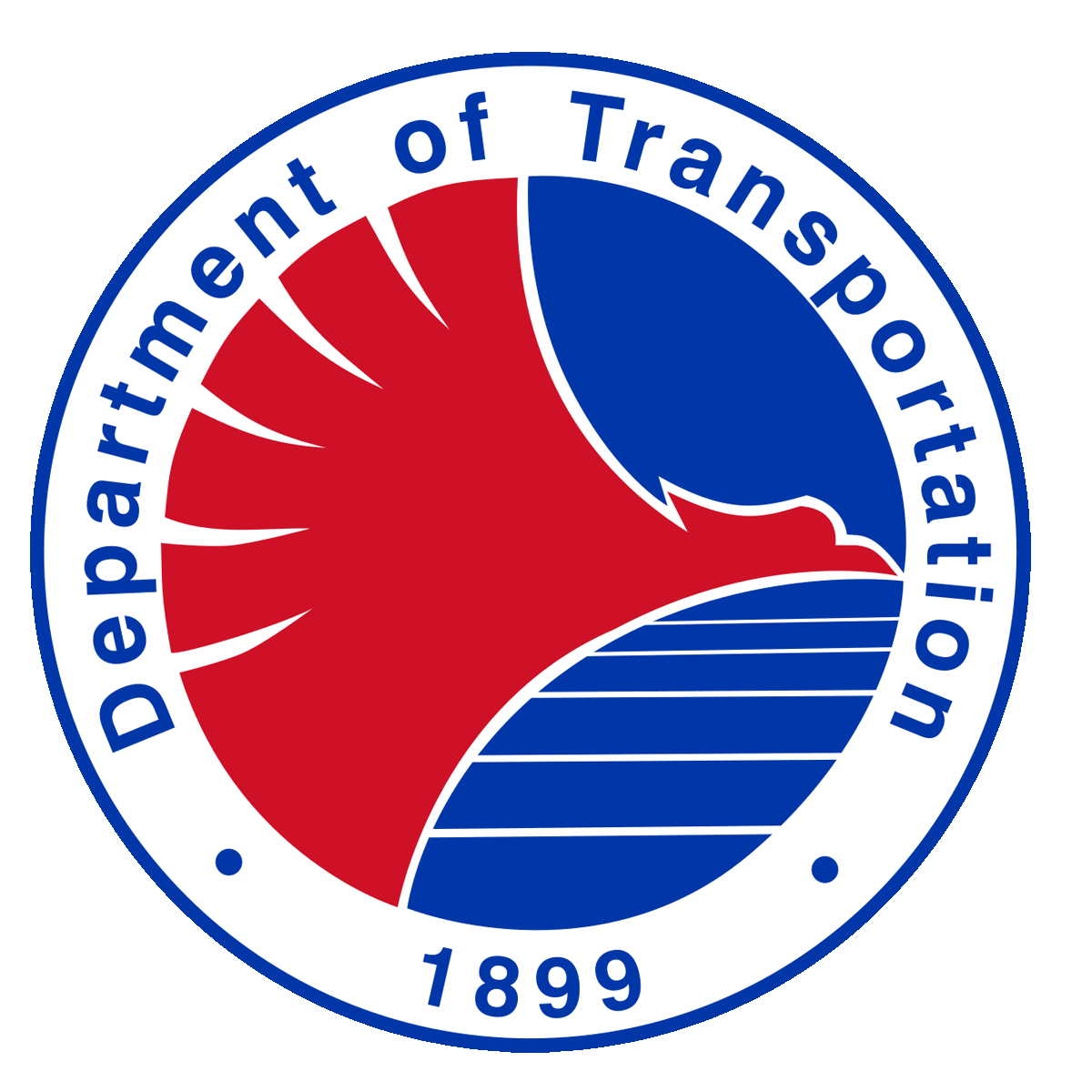 The DOTr PAPs focus on the development of infrastructures such as Railways, Maritime, Aviation, Road transport, and Toll roads. DOTr reported that from 2016 to 2019, it has reached a total of 119 completed airport projects; of which 70 projects are directly under the DOTr. Some completed projects include Marinduque, Sangley and Camiguin Airport.
The DOTr PAPs focus on the development of infrastructures such as Railways, Maritime, Aviation, Road transport, and Toll roads. DOTr reported that from 2016 to 2019, it has reached a total of 119 completed airport projects; of which 70 projects are directly under the DOTr. Some completed projects include Marinduque, Sangley and Camiguin Airport.
Moreover, DOTr also reported numerous railway infrastructure projects namely the North-South Commuter Railway System, Metro Manila Subway, MRT3 Rehabilitation, Mindanao Railway, PNR South Long Haul (Manila-Batangas-Sorsogon), LRT-1 Cavite Extension and Subic-Clark Railway. It is noted that some of the said projects are now ongoing rehabilitation specifically that of the MRT-3 which includes the overhaul of the rail line’s 72 light rail vehicles, replacement of mainline tracks, rehabilitation of power and overhead catenary systems, and other improvements.
All these initiatives are geared to make the movement of goods and people not only easier and faster but more so, cost-effective and efficient.
For other programs and further details, visit the DOTr website at http://dotr.gov.ph/- PKC

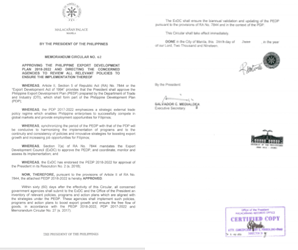 In a Presidential Memorandum Circular (MC) No. 62 approving the Philippine Export Development Plan (PEDP) 2018-2022, concerned government agencies are mandated to implement their respective programs, activities and projects (PAPs) relevant to the PEDP.
In a Presidential Memorandum Circular (MC) No. 62 approving the Philippine Export Development Plan (PEDP) 2018-2022, concerned government agencies are mandated to implement their respective programs, activities and projects (PAPs) relevant to the PEDP.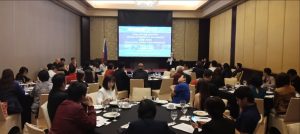
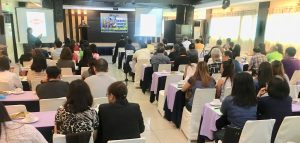 The Department of Trade and Industry-Export Marketing Bureau (DTI-EMB) and the Export Development Council (EDC) will hold a series of Stakeholders Engagements on the Philippine Export Development Plan (PEDP) 2018-2022 in Regions. It aims to present the PEDP 2018-2022 and solicit commitments among stakeholders to implement the Plan. The first Stakeholders Engagement was conducted in General Santos City and Koronadal City for Region 12 last July 25-26, 2018.
The Department of Trade and Industry-Export Marketing Bureau (DTI-EMB) and the Export Development Council (EDC) will hold a series of Stakeholders Engagements on the Philippine Export Development Plan (PEDP) 2018-2022 in Regions. It aims to present the PEDP 2018-2022 and solicit commitments among stakeholders to implement the Plan. The first Stakeholders Engagement was conducted in General Santos City and Koronadal City for Region 12 last July 25-26, 2018.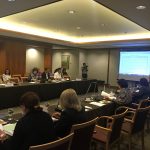
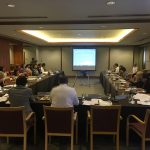
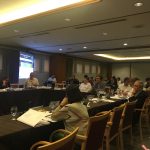
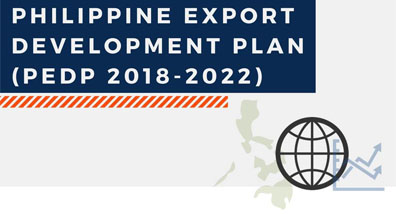
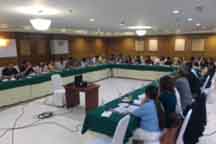 The exporters underscored the need to increase government budget to finance exporters’ participation in international trade fairs and have bigger and more presentable Philippine booths to be at par with exporters of other ASEAN countries.
The exporters underscored the need to increase government budget to finance exporters’ participation in international trade fairs and have bigger and more presentable Philippine booths to be at par with exporters of other ASEAN countries.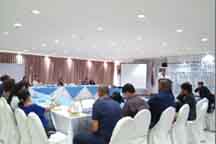 These inputs were gathered during the recent Focus Group Discussions (FGD) for the PEDP 2018-2022 in Cebu and Davao attended by various sectors from handicraft, shell, agrimarine products, food, banana, cacao, furniture, lifestyle products and activated carbon. The next FGD will be conducted with the services sector specifically IT-BPM, audiovisual, animation, franchising and retailing and tourism and travel-related services. –
These inputs were gathered during the recent Focus Group Discussions (FGD) for the PEDP 2018-2022 in Cebu and Davao attended by various sectors from handicraft, shell, agrimarine products, food, banana, cacao, furniture, lifestyle products and activated carbon. The next FGD will be conducted with the services sector specifically IT-BPM, audiovisual, animation, franchising and retailing and tourism and travel-related services. – The PEDP 2018-2022 will be anchored on the Philippine Development Plan (PDP) 2017-2022, the 10-point socio economic agenda of the President and the existing PEDP 2015-2017. New export strategies and programs to boost export performance will also be adopted to achieve the export target of $122B-130B by the end of the term.
The PEDP 2018-2022 will be anchored on the Philippine Development Plan (PDP) 2017-2022, the 10-point socio economic agenda of the President and the existing PEDP 2015-2017. New export strategies and programs to boost export performance will also be adopted to achieve the export target of $122B-130B by the end of the term.